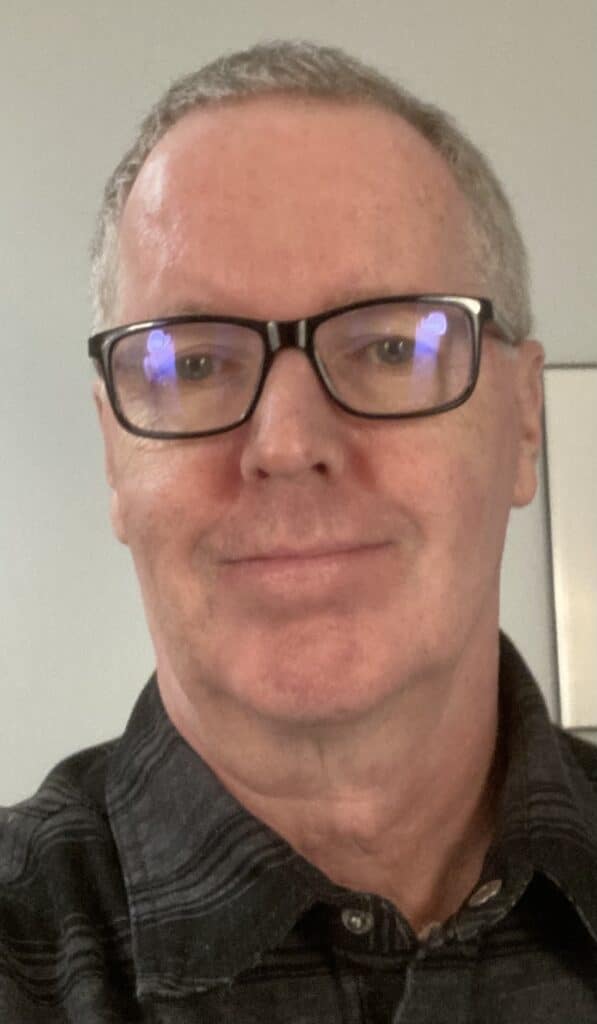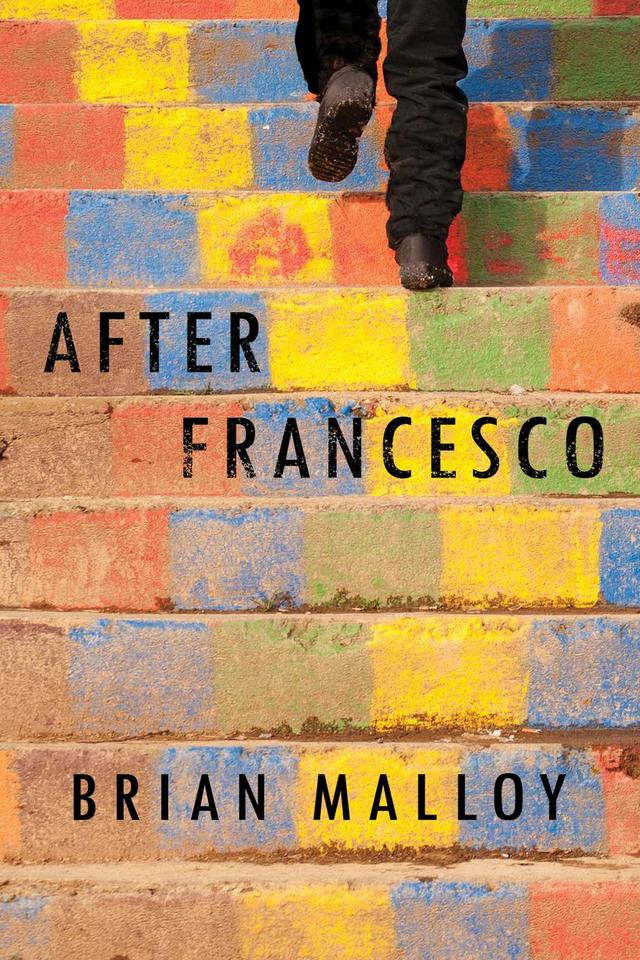Brian Malloy, author of After Francesco
Novel & Short Story Category
Each week leading up to the 34th annual Minnesota Book Awards Ceremony, we are featuring exclusive interviews with our 36 finalists. You can also watch the authors in conversation with their fellow category finalists here.

Would you tell us one or two things about your finalist book that you are particularly proud of, and why?
Last year marked the 40th anniversary of the first Center for Disease Control report on what would become known as AIDS. The pandemic – as my generation of gay men experienced it – is becoming a footnote in some histories, and completely absent in others. I’m proud that After Francesco bears witness to the early years of AIDS and how my community responded with compassion, service, and activism.
What do you hope that your audience learns or takes away from your book?
I hope readers takes away a clearer understanding of what life was like during the first decade of AIDS in gay Amefarica, and an appreciation of how much progress has been made. It may be hard to imagine today, but in the 1980s we were dying needlessly and fighting desperately. Imagine COVID without either President Trump during his last year in office, or President Biden during his first four-year term, ever once mentioning the disease. Imagine the first proposed legislation for COVID funding dying in committee, not to be taken up again that year. Imagine older Americans having to educate themselves on how to avoid infection, having to raise their own money for COVID research, and volunteering to provide emotional and practical support to people sick and dying from COVID because many doctors refused to treat them and most care facilities refused to admit them. Imagine the deaths were shameful family secrets and declared God’s judgement by major religious leaders. Now imagine the New York Times ignoring the pandemic, and comedians like Eddie Murphy making COVID jokes about those who suffered and died. Imagine Rush Limbaugh celebrating the deaths on his radio program.

That is what it was like, but without marriage equality and without civil rights protections. Gay men fought back, and we owe a major debt to lesbians and those heterosexuals who were our unflinching allies during this time in American history. Today HIV/AIDS is, for the most part, a manageable, chronic condition, and I believe the legacy of AIDS activism can also be found in marriage equality (2015) and federal civil rights protections (2020). After Francesco is about resilience, compassion, hope – and gallows humor – in the face of what has been described as a genocide of prejudice. But After Francesco’s not a catalog of woes – I want to leave readers with a sense of hope for our shared future.
What advice would you give to an aspiring writer with an interest in your category?
Put time to write in your weekly calendar, and treat it like an appointment with a medical specialist you have been waiting months to see. Don’t wait for the muse. If you’re stuck, write about what you would write about if you could write about it. That will get the keyboard clicking as you summarize your ideas, and list questions you need answers to in order to flesh out the story and characters. Research will lead to more ideas. Turn off the editor and the critic. The first part of the process is generating raw material. If you don’t do that, you won’t get to the next part of the process. Honor the process by starting at the beginning: get words on the page without judgment.
Tell us something about yourself that is not widely known.
I’m from a family of bootleggers. During prohibition, Malloy’s Bar in Philly’s West Passyunk neighborhood was shut down, and my Mom-Mom – an Irish immigrant with five children – had to get by selling gin. You do what you have to do. It sounds exciting and colorful in retrospect, but at the time it must have been truly terrifying for her. There was no Social Security for widows and children; no entitlement programs like food stamps. If she’d been sent to prison, who knows where my father, uncle, and aunts would have ended up? I draw inspiration from her life.
Minnesota enjoys a reputation as a place that values literature and reading. If this sentiment rings true for you, what about our home state makes it such a welcoming and conductive place for writers?
Minnesota has a long reading and writing season, aka winter. We’re also home to the first American writer to win the Nobel Prize for literature, and our state is the setting for iconic books, such as Ordinary Grace and The Antelope Wife. I believe a big part of the reason that Minnesota is such a welcoming place for writers is its investments in education and healthcare, (compared to most other states), and its public and private support of a broad and diverse range of art forms – everything from the Textile Center in Minneapolis to the Ely Folk School. That said, I am concerned that many of our larger foundations have dropped the arts from their grantmaking in recent years.
Since the onset of the pandemic in early 2020, virtually everything about our lives has changed in some way. Has COVID-19 (and its fallout) impacted your writing habits and preferences? Has the unique zeitgeist of the past two years influenced your writing output in any other ways that you can pinpoint?
After Francesco was completed pre-COVID. For gay men of a certain age, there has been a sense of déjà vu during the past two years. Anthony Fauci was back in the news, we were again protesting Donald Trump, and homemade cures were being peddled once more to the frightened and the desperate. It had no impact on my writing.
Brian Malloy is an activist and award-winning author of three novels. The recipient of an ALA Alex Award and a Minnesota Book Award, he currently teaches creative writing in Minneapolis.

